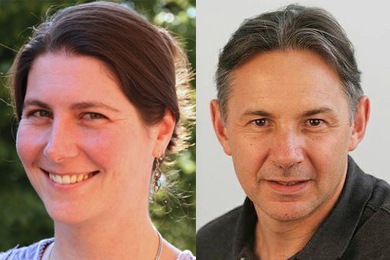
Janina Kirsch and Jan Korvink
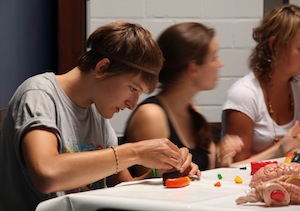
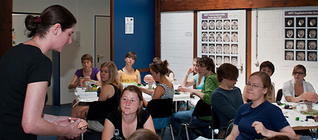
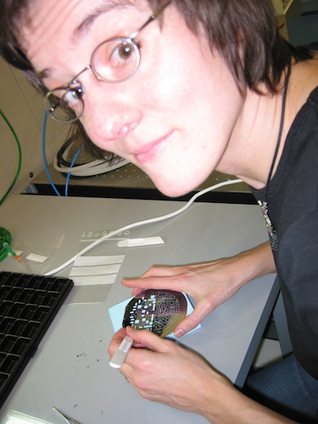
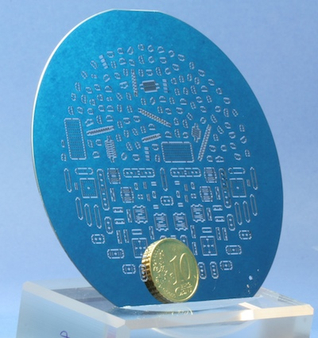
The senate of the university has announced this year’s recipients of its teaching awards. The prize is given to educators whose courses are outstanding both in their content as well as their didactic value, or make use of innovative teaching methods. In 2011, two out of three awardees are associated with BrainLinks – BrainTools: Janina Kirsch from the Bernstein Center Freiburg, and Jan Korvink, Director at the Freiburg Institute for Advanced Studies.
Janina Kirsch received the award in recognition of her course “Das menschliche Gehirn – Ein Mal- und Bastelkurs” (‘The Human Brain – A Course in Drawing and Handicraft’). As the university senate points out, Janina successfully introduces Bachelor students in a very concrete way to the anatomy of the brain and the function of its different areas. The course, as its name indicates, favours a ‘hands-on’ approach to understanding the brain. The modelling of different structures of the brain with plasticine is an important part of this concrete approach, and the same is true for the visualisation of neuronal links through strings and pearls.
With her concept, Janina enables the students to overcome their initial inhibitions to approach this highly complex topic, and to literally get a ‘grasp’ on brain anatomy. The course is also highly interactive: Students have to research and give presentations during the course – a way of guided self-study that increases their ability to memorise the course’s content.
The relaxed and communicative atmosphere also allows the students to turn one of their first encounters with neuroscience into a truly positive experience.
To research, invent, and produce together – these are the goals for students in Professor Korvink’s course “DesignLab”, part of the Master programme Microsystems Engineering. In groups of five, students assume the roles of project manager, product designer, or development engineer over the course of two semesters. Their task is to design, construct and demonstrate a technical system. In the course’s current run, this system is a “scanning force microscope”. The only limit that is given to the young researchers is their budget: The system mustn’t cost more than 200 €. Everything else is left to the student’s imagination and creativity. The acquisition of knowledge in simulation and production methods is part of the curriculum, but the focus clearly lies on the building of soft skills like teamwork, self-organisation and learning successful strategies.
“Learning to use your own creativity effectively in order to come up with novel solutions is a clear competitive advantage”, says Korvink. He holds the Chair for Simulation at the Department of Microsystems Engineering and is the director of the School of Soft Matter Research at the Freiburg Institute for Advanced Studies (FRIAS). He perceives his freedom of research also as the freedom to explore new approaches to teaching and is convinced: “Teaching and research should be closely linked. The added value of a university – in contrast to an institution purely committed to teaching – is its spirit of research. And this is exactly what we should give the students to take with them. Taking a different perspective when looking at the world, asking the right questions, and dealing with the answers responsibly.” Apart from the creation of a dedicated website for data exchange and documentation, the teams of students also write project reports and produce a poster presentation and informative leaflet. As Korvink concludes: “When the students eventually are able to present their finished microscope, this is a positive experience that stays with them and motivates them further.”
The awards ceremony will be held at the beginning of the new academic year on October 26, 2011.
Links
University press release (in German)